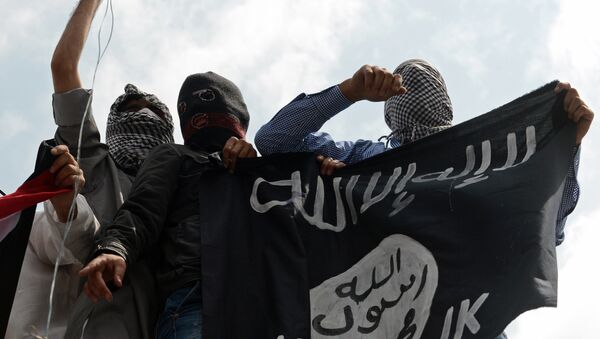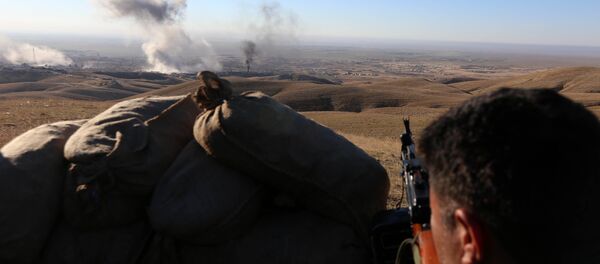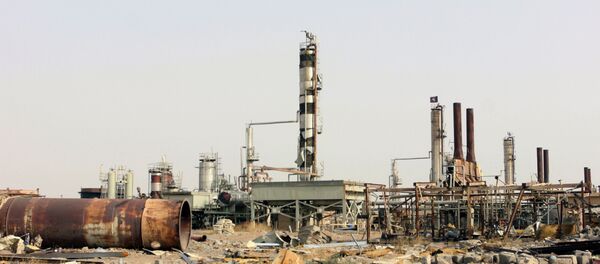As the United States escalates its military campaign against the self-proclaimed Islamic State terrorist group, the Obama administration is considering a number of options. Last month, the US announced a plan to deploy up to 50 Special Forces "advisers" into Syria, and some are calling for an even more blatant US troop presence.
On Thursday, US Defense Secretary Ashton Carter announced that the Pentagon was also expanding its "rules of engagement" during airstrikes against IS. This change in approach means that the US will now target fuel trucks involved in the terrorist group’s illegal oil industry.
"The more we have cooperation from intelligence partners in the region and in Europe, the more effective we’re going to be," White House Deputy National Security Adviser Ben Rhodes reiterated, according to the Washington Times.
"We’ve increased the targeting of ISIL oil infrastructure in recent days with great success in targeting trucks that were carrying oil that brings significant amounts of revenue to ISIL."
But given the extent to which IS has wormed its way into the regional economy, some worry that attacking oil supply lines could have unintended consequences.
"…Damaging the economy in ISIS-occupied territory risks making the average civilian within even more dependent on the cash-rich ISIS movement, and more vulnerable to recruitment," Jason Ditz writes for Anti-War.
While IS earns roughly $50 million per month in crude sales from its production facilities in Iraq and Syria. But because of their stranglehold over the regional supply, many are forced to do business with the terrorist group.
"It’s a situation that makes you laugh and cry," one Syrian rebel commander told the Financial Times. "But we have no other choice, and we are a poor man’s revolution. Is anyone else offering to give us fuel?"
People wait in long lines for months, waiting their turn to stock up on much-needed oil to heat their homes, run businesses, and operate hospitals.
If the Pentagon begins bombing those fuel supplies – especially if those strikes are conducted after the fuel in question has been paid for – then it could drive people struggling to survive even closer to the terrorist group.




